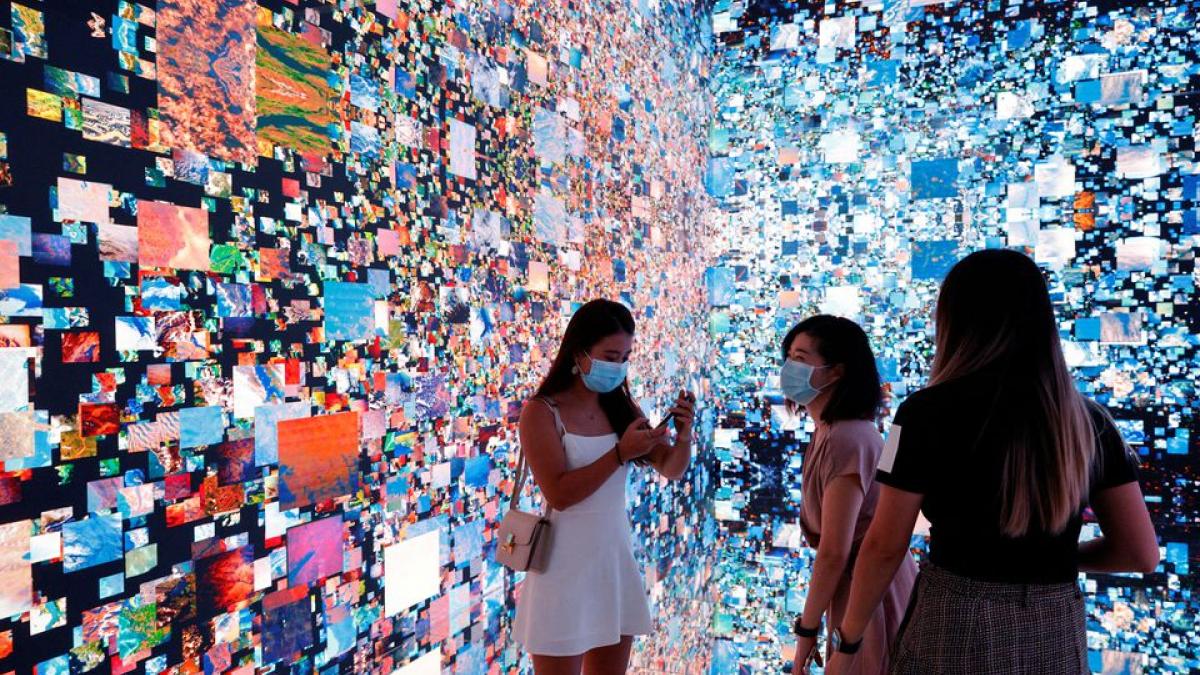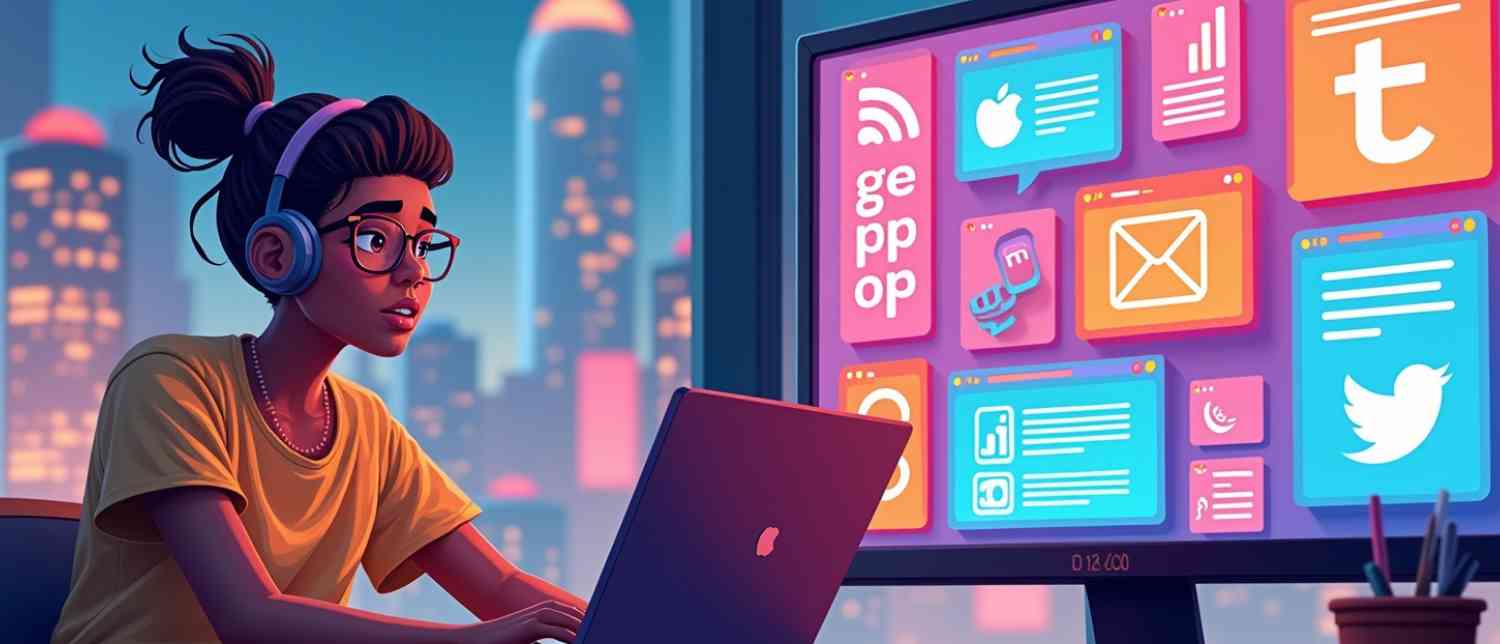In today's digital world, social media is more than just a place for sharing photos and chatting with friends. For Gen Z, those born roughly between 1997 and 2012, these platforms have become a daily lifeline. But behind the colorful reels, posts, and endless scrolling lies a powerful force shaping what young people see, think, and feel—the invisible engine of social media algorithms. These algorithms control everything from the videos shown to the ads pushed forward, often trapping this generation in a manipulated world far from reality.
The Hidden World Behind the Screen
Social media algorithms are complex sets of rules that decide what each user sees. In 2025, they have become more advanced and personalized than ever. These algorithms track every action—what posts users like, how long they watch a video, what content they skip—and then show more of what keeps them engaged. This means users, especially Gen Z, don’t choose what they want; the algorithm chooses for them.

The problem? The content shown often paints a very narrow and distorted view of reality. Instead of showing the full picture, algorithms feed users what is designed to grab attention, keep them glued to their screens, and maximize the time spent on the platform. This not only distracts from real-life issues but also creates echo chambers where only similar views and ideas are amplified, blocking out different opinions and facts.
Ignoring Real Issues: A Generation Misguided
One major concern is that while the world outside faces real challenges—like climate change, inequality, and political corruption—the daily feeds of Gen Z are filled with what the algorithms deem most "engaging" but often trivial content. The carefully curated posts give the illusion that everything is fine, while deeper, more complex societal issues get buried under piles of viral videos and sensational reels.

For example, political corruption and growing inequality continue to affect many, yet these are rarely the subjects that dominate Gen Z's feeds. The reason is straightforward: content about corruption or political struggles often lacks the instant entertainment value that short videos or memes provide. So, while crucial news fails to reach this key demographic meaningfully, they remain unaware or apathetic about the real world’s pressing problems.
The Rise of Negative Content: Porn and Toxic Relationships
Social media algorithms prioritize engagement, and unfortunately, this often means amplifying content that triggers strong emotional reactions—even if those reactions are negative. Pornographic content, which easily attracts clicks and views due to its seductive nature, has seen a worrying rise online, available more subtly than ever. This growing accessibility adds pressure on young people, impacting their mental health and relationship views.
_1757581160.jpg)
Similarly, many young people witness and experience the negative effects of social media on personal relationships. Short, dramatic reels or posts often highlight break-ups, cheating, or toxic behaviors, which can distort expectations around love and trust. With constant exposure to these negative portrayals, relationships among Gen Z are sometimes weakened, with many feeling cynical or fearful about love.
Data Privacy and the Stalking Giants
Behind the scenes, giant tech companies like Google, Facebook (now Meta), and TikTok collect enormous amounts of user data to train their algorithms and maximize ad revenues. This data collection often feels like stalking, with companies tracking browsing habits, location, and interactions to build detailed profiles. Gen Z, despite being digitally savvy, is frequently unaware of just how much personal information they’re handing over or how it’s used to manipulate them.

This surveillance capitalism is a massive concern, as it means algorithms can push content finely tuned to keep users hooked. Recognizing this helps explain why social media platforms seem so "addictive" and why young users can feel powerless over their digital habits.
Political Echo Chambers and Divided Loyalties
Social media algorithms also intensify political divisions. Many users stick to content that supports their favorite political party or beliefs, even when evidence of corruption or wrongdoing exists. This selective exposure fosters blind loyalty, where uncomfortable facts are ignored simply because they "don’t fit" the preferred narrative.

Such echo chambers weaken democratic discourse and make it harder for society to unite on important issues. For Gen Z, this means growing up in a fractured information environment that encourages partial truths and tribalism.
What Can Be Done? A Path Forward
The story isn’t all bleak. Awareness is the first step toward change. Gen Z and society as a whole need to understand how social media algorithms work—not just as users but as critical thinkers. Parents, educators, and policymakers should promote media literacy, teaching young people to question the content they see and seek balanced perspectives beyond algorithmic feeds. Platforms themselves have the power to redesign algorithms to prioritize meaningful content over just engagement. Some are beginning to emphasize community, authenticity, and quality of information, which could help.
_1757581663.jpeg)
Lastly, individuals can reclaim control by limiting social media use, diversifying their information sources, and engaging in real-world experiences. Remembering that social media is a filtered window, not the full view of reality, can help break the cycle of manipulation.
Breaking Free from the Algorithmic Trap
Social media algorithms have hijacked the attention and trust of Gen Z, entrapping many in a manipulated digital world fully detached from real-life problems. The surge in harmful content like pornography, the impact on personal relationships, the corrosive effect of political echo chambers, and the invisible hand of data-hungry tech giants all point to a crisis that goes beyond mere screen time.

If the younger generation is to regain their perspective and participate fully and wisely in society, a collective effort is needed to shine a light on these hidden mechanisms. Algorithms may control our feeds, but with awareness, education, and conscious choices, Gen Z can break free and reconnect with the reality that truly matters.
With inputs from agencies
Image Source: Multiple agencies
© Copyright 2025. All Rights Reserved. Powered by Vygr Media.


























